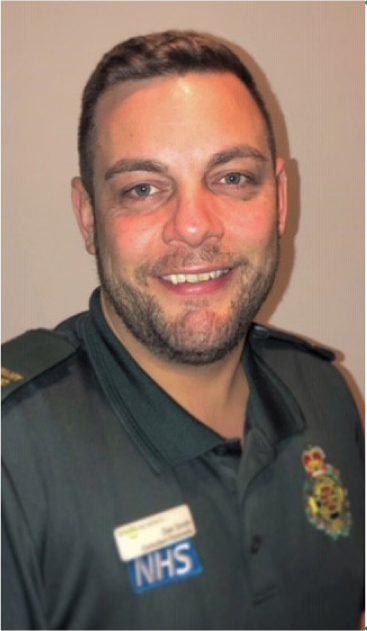
Today I will be playing the role of ambulance commander, with colleagues from across the entire health and social care system here in Manchester. I will work alongside NHS colleagues and partner organisations as we manage the aftermath of what has been a major mass casualty incident. Thankfully, the event is fictitious but it is brilliantly designed to test every corner of our system and, although the patients are fictitious, the passion, decisions, frustrations and challenges are all very real.
This exercise actually started a few years ago and each iteration has moved us closer from the opening minutes of the incident through to our objective today: looking at an incident that's 36 hours old and understanding its impact. While we role-play our individual parts, many emotions in the room today will be real. There are a number of people participating who were actively involved in responding to the dreadful Manchester Arena terrorist attack in May 2017. As I'm sure will be the case for them and many others, the victims of that attack will be in my mind today as we discuss our incident.
It's no surprise to me that today's agenda includes a session on mental health support during and after a major incident. You may have been involved in some truly awful major incidents—terrorist or not—there will always be lessons for next time. Today is about testing processes so that we continue to learn.
Major incident response is a huge part of my role; not simply because I have some commander on-call responsibilities but because any incident of that type will impact on staff, patients and systems. The tasks I am responsible for on a day-to-day basis will suffer a significant impact if a major incident occurs, so I'd better be good in my role-play today!
Over the last few weeks, I have been involved in managing the ambulance service response to a fake riot, a fake terrorist attack and today's fake mass-casualty incident. Each time we meet for one of these exercises, we don't just learn about process, but about each other; we build relationships and gain an understanding of other organisations. We are preparing for that sad day when fiction becomes real.
The role-play theme continued into a recent clinical meeting with my team, where we discussed the topic of simulation and our own professional standards. Now this role-playing is in the blood of most paramedics; it's how most of us trained! My team is made up of a group of advanced paramedics and we meet regularly to discuss real cases where there have been complex decisions or unusual experiences, or where we've used extended skills. What we don't do often, is carry out an actual simulation where we truly test each other's skills and decision making. We communicate well enough and, as I've mentioned previously, we work clinically together, but if exercising a major incident is so beneficial, surely that translates to practice as well.
Role-play does remind me of ‘jazz hands’ from my basic training, where instead of putting gloves on (they were expensive after all) we would walk towards a patient, announce happily ‘the scene looks safe’ and then wave our hands as if we were starring in Chicago saying ‘gloves on’! Hardly high-quality simulation and something to avoid in the future. Role-play is, and continues to be, an essential tool in improving care to patients—we just need to make sure we are realistic with it. Good simulation should equate to a good learning experience but poor simulation can be counterproductive and either result in learning never becoming embedded or, worse, poor practice.
I have recently said goodbye and good luck to two members of the team as they continue in their professional development with another organisation. I have always tried, and hopefully succeeded, to facilitate professional development, support growth and encourage anyone to further themselves. Perhaps somewhat controversially, that will mean supporting some colleagues to move on to other organisations. I've been asked many times if I should be doing more to stop the movement of paramedics to non-ambulance service roles. My response is simplistic: no, I don't! It clearly isn't that simple, and it's not about people leaving—it's about why they're leaving.
I think the opportunities now available to paramedics should be celebrated. Of course, as employers, we must do what we can to build a workplace of choice with rotational and flexible working arrangements. But trying to stop progression simply to stop people moving organisations feels counterintuitive to me; because whilst I feel sad when colleagues leave, I also want our profession to grow and for paramedics as individuals to grow.
It means that this month, my final role-play was hiding my personal but selfish feelings of sadness and supporting my colleagues to move onwards and upwards in their careers. They know they will be missed, but my role is to support the growth of the person and the profession—and that means generating opportunities for the future.

